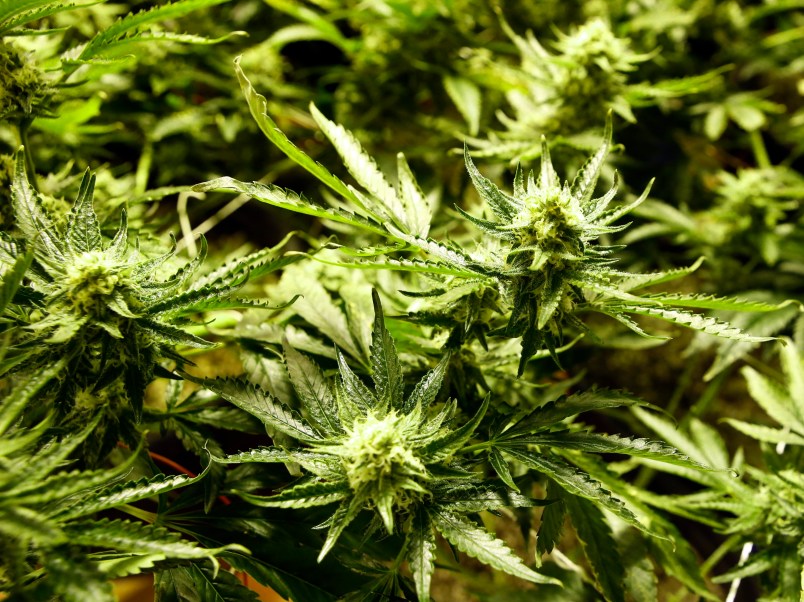MIAMI (AP) — Democrats in the nation’s largest swing-state see the question of whether to legalize medical marijuana as a rare source of hope and high voter turnout in this year’s midterm elections.
Party operatives are pushing a constitutional amendment that would make Florida the first state in the South to legalize some pot use. Polls show the measure has widespread public support, and it’s particularly popular among young voters — a critical part of the Democratic coalition with historically weak turnout in non-presidential election years.
“I wish that it didn’t take medical marijuana on the ballot to motivate our young voters to go and vote because there’s far too much at stake for them and their children,” said Ana Cruz, former executive director of the Florida Democratic Party. “But listen, we’ll take it any way we can get it.”
At stake is the Florida governor’s office, as well as a handful of competitive House seats. But the nation’s political world will be watching Florida’s turnout in November for clues to whether pot on the ballot could draw young people to the polls.
In 2012, both Washington and Colorado saw spikes in youth turnout when marijuana initiatives were on the ballot. This year, Florida could be a critical test case for whether those increases were an anomaly or the start of a trend in advance of the presidential election in 2016, when activists plan to launch legalization campaigns in at least six states, including battleground Nevada.
“It’s a smart move on the Democrats’ part,” said David Flaherty, a Colorado-based GOP pollster. “It’s going to help them, no doubt about it.”
The marijuana initiative may be one bright spot for Democrats in an election year that could be grim for the party. President Barack Obama remains unpopular, and Republicans are trying to make the elections a referendum on his health care law. Gov. Rick Scott is making the health care overhaul a central issue in the governor’s race and outside conservative groups, such as Americans for Prosperity, are funding a barrage of negative ads against Democrats in a handful of swing-voting House districts.
“I would rather have it on the ballot than not,” said Steve Schale, a Democratic consultant who managed Obama’s Florida campaign in 2008. “It could have a marginal impact, and a marginal impact in Florida could be the difference between winning and losing.”
A Republican victory in a special House election last month in Florida underscored the Democrats’ turnout problem. The St. Petersburg-area district has 2.4 percent more registered Republicans than Democrats, but GOP voters outnumbered Democrats by 8 percentage points among those who cast ballots.
While far from a cure-all, Democrats say the medical pot measure could help counter Republican energy by motivating young and independent voters. According to a national survey sponsored by George Washington University last month, nearly 40 percent of likely voters said they would be “much more likely” to vote if a legalization measure was on the ballot, with another 30 percent saying they would be “somewhat” more likely to vote.
Organizers of the medical marijuana effort plan to raise and spend $10 million on their campaign, with much of the money devoted to a turnout operation aimed at registering voters to cast absentee ballots.
“We want to be able to have our stereotypical, lazy pothead voters to be able to vote from their couch,” said Ben Pollara, a Democratic fundraiser and campaign manager for the United for Care group, which also plans to get voters to the polls on Election Day.
Republicans argue that Democrats do not have a clear-cut advantage on medical pot, with public polls showing an overwhelming majority of GOP voters in Florida supporting it. They also say it’s unlikely to excite young voters in the way that legalization campaigns did in Colorado and Washington, where pot was sanctioned for recreational use along the lines of alcohol, or become part of a divisive culture war that could drive turnout.
___
Associated Press news researcher Judy Ausuebel contributed to this report.
___
Follow Michael J. Mishak on Twitter: https://twitter.com/mjmishak
Copyright 2014 The Associated Press. All rights reserved. This material may not be published, broadcast, rewritten or redistributed.










